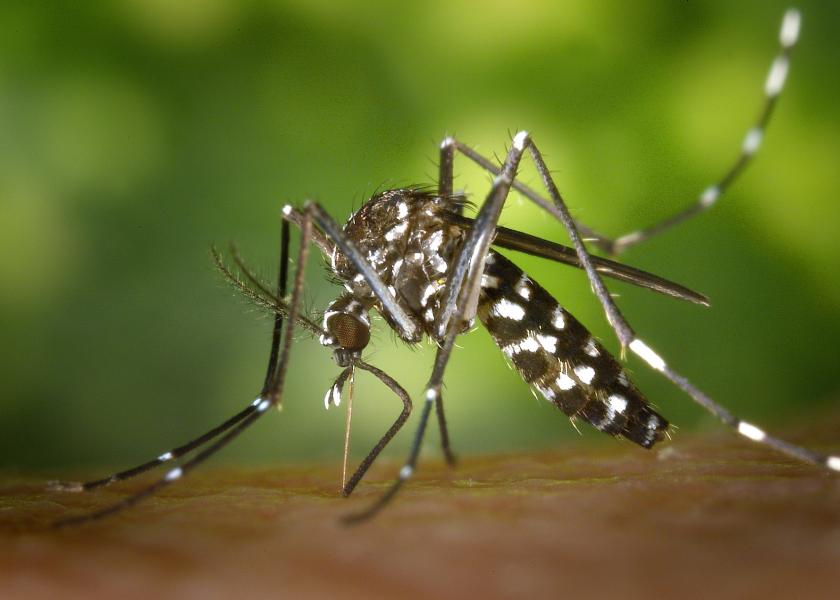Japanese Encephalitis Virus: SHIC/FFAR Collaboration Seeks Research Proposals

The Swine Health Information Center and the Foundation for Food & Agriculture Research (FFAR) have partnered to fund a $1-million research program to enhance U.S. prevention, preparedness and response capabilities for Japanese encephalitis virus (JEV), a transboundary disease risk for U.S. introduction.
In 2022, an outbreak of JEV genotype IV spread rapidly across new geographic regions of Australia affecting breeding swine herds and causing reproductive failure, delayed farrowing, stillbirths, mummified fetuses, abortions and weak piglets. This recent incursion of a new JEV genotype into areas previously free from disease warrants the need for a close investigation of this virus and its potential for incursion and establishment in the U.S.
"SHIC’s strategic mission is to identify risks to swine health includes global and domestic disease monitoring to maintain an acute awareness of emerging swine diseases around the world," SHIC said in a release.
JEV is transmitted through the bite of infected Culex mosquitoes and biosecurity practices focused on mosquito control are key to reducing risk. Because the U.S. has competent vectors and hosts, shares similar climate and environmental conditions with countries where JEV is epidemic, and has increased travel and trade with JEV-affected regions, experts believe these characteristics, along with the lack of active JEV surveillance, make this region at risk to a JEV incursion.
"Understanding the potential impacts of JEV on pork production in the U.S. is critical to protecting the health of the U.S. swine herd as well as mitigating the risk of this emerging disease," the organizations said in a release.
In response to this emerging disease, SHIC and FFAR invite proposal submissions from qualified researchers for funding consideration to address identified research priorities for JEV, including topic areas of:
1. transmission and epidemiology
2. mosquito control
3. diagnostics
4. communication
5. surveillance
6. compatible cases
7. challenge models
8. vaccines
9. cross-protection
10. competent vectors
11. role of wildlife
12. novel hosts
13. viral sequencing
Proposal information and a detailed list of research priorities can be found here. Proposals should clearly state which of the identified SHIC/FFAR JEV research priorities will be addressed through the project.
The organizations note that collaborative projects that include the pork industry, international organizations, allied industry, academic institutions and/or public/private partnerships are highly encouraged. Projects demonstrating the most urgent, timely completion, providing the greatest value to pork producers, and showing efficient use of funds will be prioritized for funding. Projects are requested to be completed within a 12-to-18-month period with sufficient justification required for extended project duration. The JEV research proposal template can be found here.
Total funding available for the SHIC/FFAR JEV Research Priorities is $1 million. Take note of the following:
1. Individual awards are capped at $250,000 but proposals may exceed the cap if sufficient justification is provided.
2. Matching funds are encouraged but not required; the $250,000 cap applies to only those funds requested from SHIC/FFAR.
3. All projects should strive to be unique, have a high impact, show value to pork producers, and have industry-wide benefit.
4. The deadline for proposal submission is 5:00 pm CDT on April 15, 2024.
SHIC and FFAR are co-hosting an informational webinar on February 22, 2024, at 3:00 pm CST to provide additional details about the application criteria. Attendees must register to attend the webinar here.







